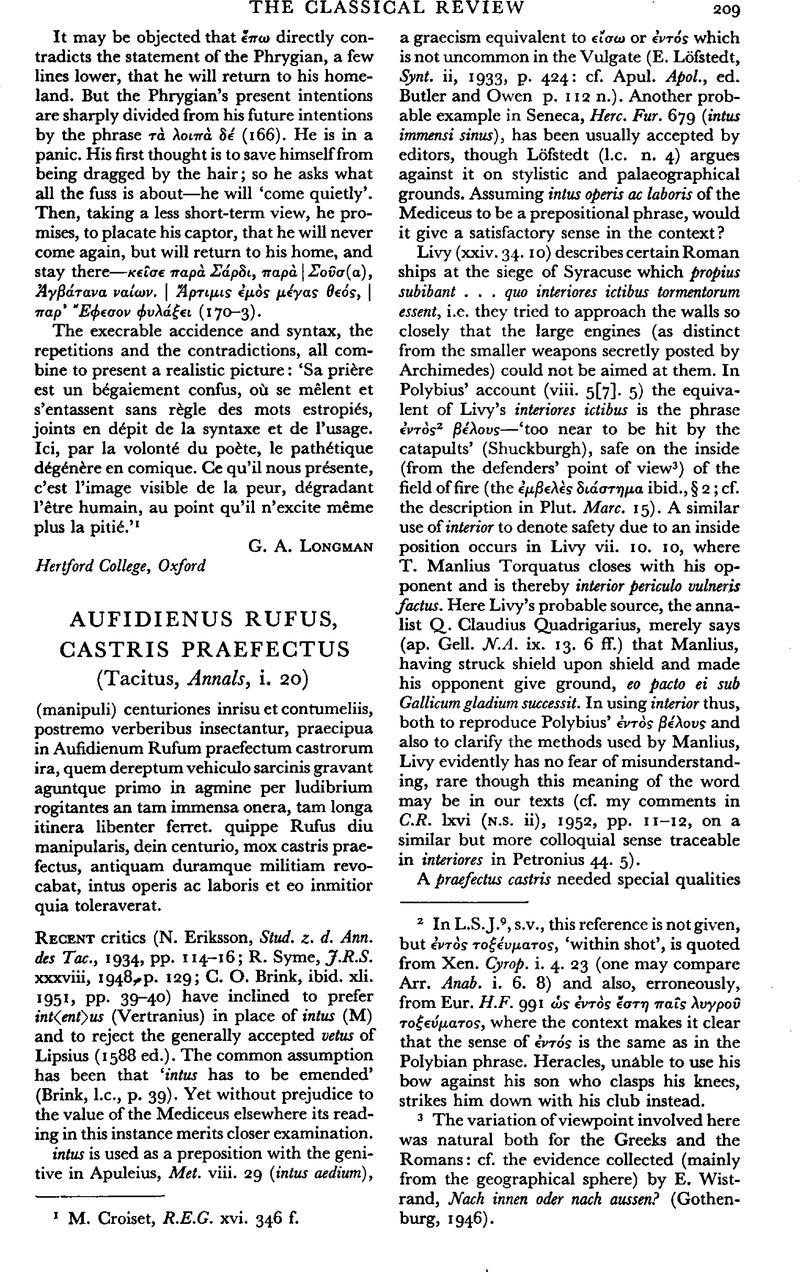No CrossRef data available.
Published online by Cambridge University Press: 13 February 2009

page 209 note 1 Croiset, M., R.E.G. xvi. 346 fGoogle Scholar
page 209 note 2 In L.S.J.9, s.v., this reference is not given, but ἐντός τοΞέυματος, ‘within shot’, is quoted from Xen. Cyrop. i. 4. 23 (one may compare Arr. Anab. i. 6. 8) and also, erroneously, from Eur. H.F. 991 ὠς ἐντός ἔστη Παῖς λυγροῦτοΞεύματος, where the context makes it clear that the sense of ἐντός is the same as in the Polybian phrase. Heracles, unable to use his bow against his son who clasps his knees, strikes him down with his club instead.
page 209 note 3 The variation of viewpoint involved here was natural both for the Greeks and the Romans: cf. the evidence collected (mainly from the geographical sphere) by Wistrand, E., Nach innen oder nach aussen? (Gothenburg, 1946).Google Scholar
page 209 note 1 The words intus etc. as interpreted above connect with the primary sense of inmitior (put into the comparative with co in anticipation of quia toleraverat), and thus fulfil Brink's requirement (l.c., p. 39) for the turn of speech in the sentence, by elaborating the idea of ‘(selfish) enforcement’ of discipline.